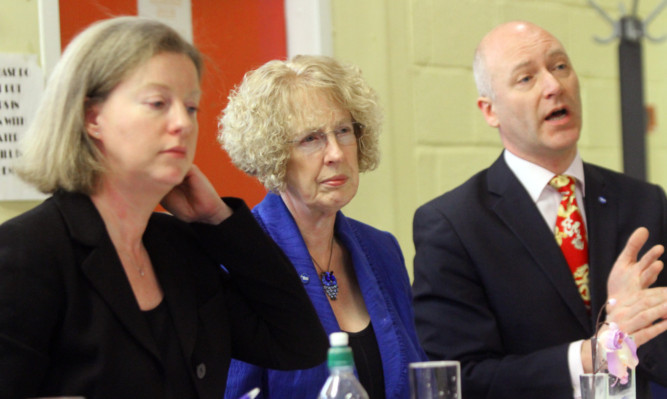Scottish Housing and Welfare Minister Margaret Burgess was in Dundee to brief a group of 70 advice service employees on how best to help tenants affected by the so-called bedroom tax.
A day after the under-occupancy charge was introduced, Ms Burgess was in town to listen to the concerns of the charities and organisations gathered in the Brooksbank Centre.
Ms Burgess said: “There’s a lot of work being done within this city and the area to ensure people are going to get the best service out there.
“We are absolutely opposed to welfare reform as it stands. I think the bedroom tax is one of the most unfair parts. It just assumes people can move.”
Ms Burgess said councils and voluntary organisations would have to work together to support people as best they could.
“We are trying to mitigate it where we can,” she added.
“We’ve also committed £5.4 million to advice services to help those on the front line impacted by welfare reforms.”
The meeting was opened to the floor and representatives from the different charities and organisations aired some of the complaints tenants have already raised.
One woman said her disabled neighbour had already received a letter to tell him he was going to be affected by the new policy. She asked how people with literacy issues and unaware they were facing under-occupancy charges could be supported.
A representative from Caledonia Housing Association said it had been carrying out face-to-face meetings with all of its tenants to make them fully aware of the situation.
Elaine Zwirlein from Dundee City Council said the housing department was visiting every person affected by welfare reform and giving them information about the possibilities of housing exchange.
The over-riding message from the meeting was the need for the council and different advice services to work together.
Brooksbank manager Jinny Lawson said it was important for people to refer tenants to the advice services with the expertise to help them.
“The council are doing the best they can,” she said.
“People don’t need to come and get help just when the crisis hits. They need to come and access help earlier. There is so much opportunity for people to get advice.
“We need to push people to go along to the advice networks and get the help they need. Everybody’s got a duty to direct someone they know to get help, get advice. We are there to help.”
Mary Kinninmonth, director at Dundee Citizens’ Advice Bureau, said: “It’s focused on the person, not the agency. There’s only so much each agency can do so we need to work together.”
